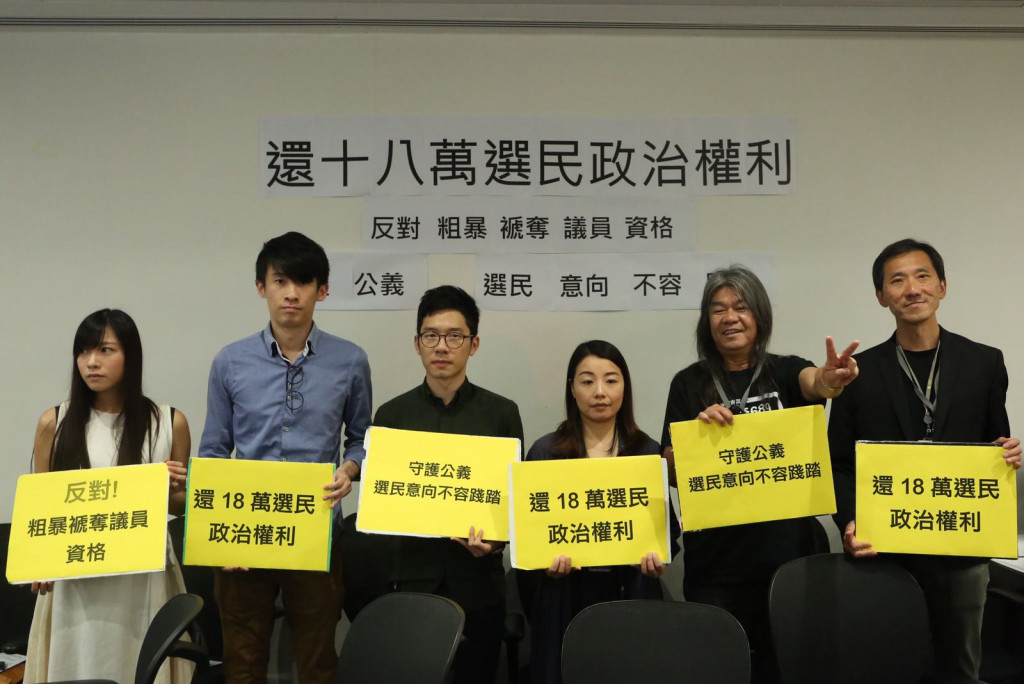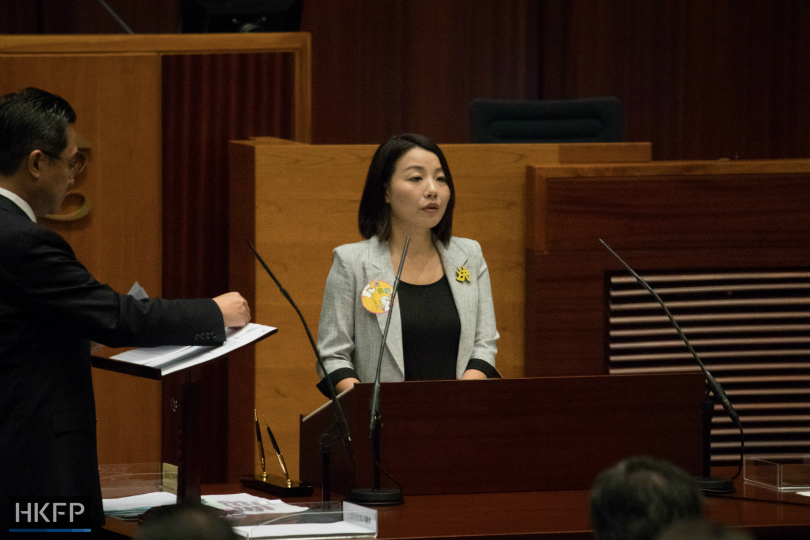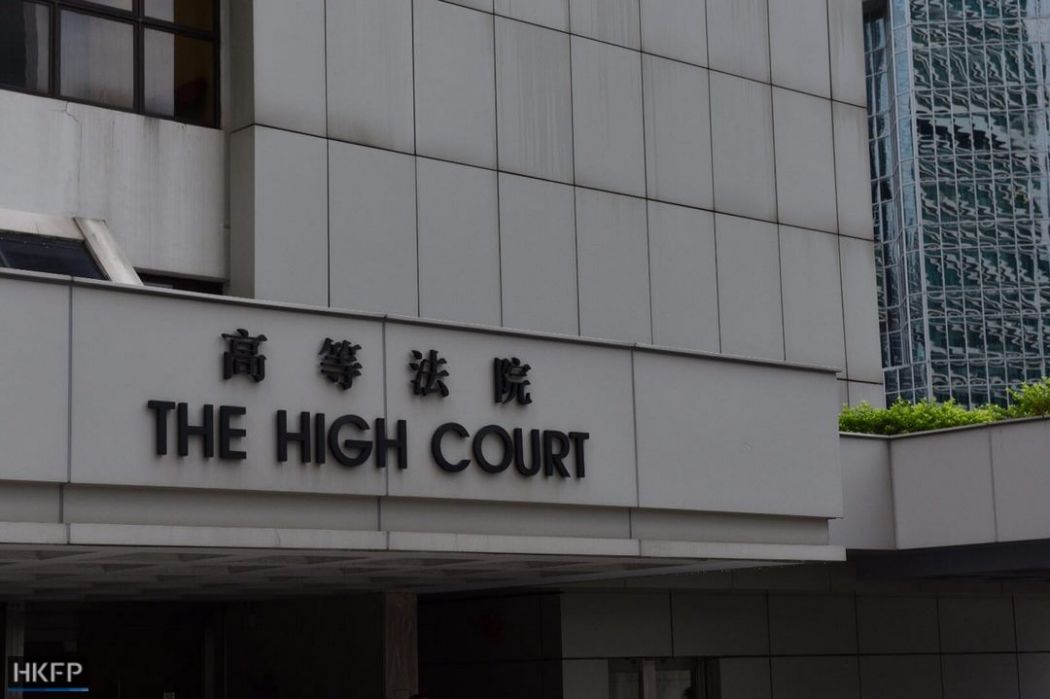Call me a glutton for punishment but, when it appeared on the Judiciary website, I read the judgement of Mr Justice Au in the legislators’ oaths cases. This was not fun. Towards the end, I felt as if I had been beaten repeatedly over the head with a volume of the old hardback Laws of Hong Kong.
Mr Au is apparently not inspired by the observation of the then Master of the Rolls, Lord Denning, that judgements should be written in a way which allows them to be understood by the lay clients involved in the case. Nor, alas, does he have that lucidity which makes some quite technical judgements a pleasure to read.

These are not complaints. Writing legal documents is a difficult and highly specialised art. The results are not meant to be entertaining, even to legal groupies like me. Sometimes we are lucky. And sometimes we’re not. I understand that on non-legal matters Mr Au is regarded as a bit of a humorist. A well-concealed trait, in working hours.
This is not a preliminary warm-up for a complaint about the result. Clearly the “interpretation” of the relevant Basic Law was intended to provide a legal reason for the exclusion of some members from the Legislative Council. As that was its purpose it would have been surprising if it had not worked.
Once the Court of Appeal had given the nod to the idea that the interpretation was automatically backdated to 1997 Mr Au really had no choice but to proceed with the flagrantly unfair notion that what had been acceptable for 20 years was now grounds for instant defenestration from Legco, and had been such grounds even before it was thought of by our imperial masters.
Students of legal thought will find some interesting by-products of this process. The interpretation says that the taking of the Legco Oath must be done “accurately, solemnly and sincerely”.

Now “accurately”, if I understand the situation correctly, has been expanded a bit to include the notion that the swearer must utter the oath, the whole oath, and nothing but the oath. Say anything before or after and you are no longer accurate. It is not enough to read the words on the card. You must not say anything else. A careless “so help me God” could be very expensive.
Solemnly, you would think, presents few problems. Did the swearer giggle, wear a red nose, insert a joke? Well this also has expanded a bit. Its most interesting feat has been to take over the space formerly occupied by sincerely.
Here I smell a small rat. Because the law, apparently, is that the court will decide on an objective basis whether the oath was solemn. Which is easy enough. These days there will be video. But owing to the conflation of the two concepts the court is also, it seems, deciding whether the vote was sincere.
Indeed Mr Au at one point explicitly states that the standard of solemnity is that a reasonable man would suppose the oath taker to mean what he or she is saying.

The problem with this is that I can believe a judge – who is presumably used to making difficult decisions – may be able to decide objectively whether an oath-taking is solemn or not. And most reasonable people would agree with his decision in most cases. The objective judgement of sincerity is quite another matter.
Sincerity is an entirely internal matter which happens inside the person’s brain. This is not a problem in the mainland legal system, where the contents of the suspect’s brain can be extracted by pushing toothpicks under his fingernails or threatening to shoot his wife. I do wonder whether it can be reliably detected by a Hong Kong judge watching a video.
After all most of us accept civic obligations to the SAR and China as arising out of the current constitutional situation. Looking at the sort of time-servers and sycophants who occupy the pro-government side of Legco we must suspect that if by some awful international error Hong Kong had been returned in 1997 to Russia instead of China, they would now be willing to swear undying loyalty to the Soviet Socialist Republic of Hong Kong. Like, whatever.
Mr Au avoided this potential problem by treating solemnity and sincerity as the same thing. I do not think that produced any injustice in the instant cases. Clearly if a swearer has tripped over the accuracy and solemnity requirement it does not matter too much whether we also diagnose insincerity or not.

Will there, though, be future cases in which the newly minted legislator has taken the oath with all the accuracy and solemnity that a reasonably law can require, but is still not the sort of person the Liaison Office wishes to see in Legco? I do not look forward happily to the spectacle of a government lawyer arguing that a legislator should be disqualified because “he took the oath but he can’t have meant it because look what he said last year”.
Curiously absent from the proceedings is the one group of people who are the losers in all this, and who happen to include me. The purpose of electing legislators is not to provide high quality advice to the government or to provide a stimulating and fulfilling career to aspiring young politicians. It is to ensure that the population of Legco reflects in its views the preferences of the electorate.
My constituency is supposed to have seven representatives. We now have only five. The one I voted for last time is out. The one I voted for the time before is out. The one I voted for in the by-election in between was not even allowed to run.
As an elector I am I think entitled to feel that I have been stiffed by the system. Of course I can if I feel strongly take legal action to compel the government to get on with a by-election or two. Why should I be deterred by the thought that the Department of Justice will claim several million bucks in costs if it wins? And if I win all I get is an election. Sorry. I have an invalid dog to support.
